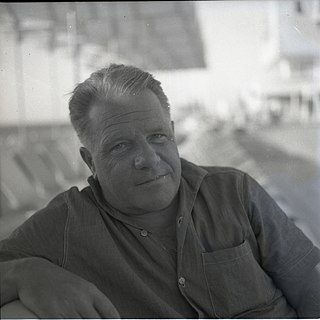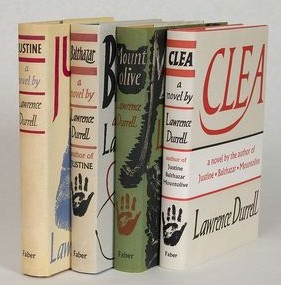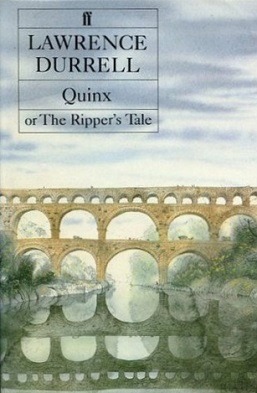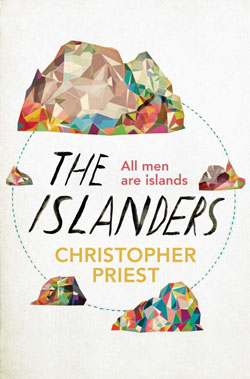Epigraphs and citations
Durrell initially titled the book Justine II in his drafts. The novel includes several last minute changes to the publisher's proofs, perhaps most significantly the replacement and expansion of the novel's introductory note. This begins: "The characters and situations in this novel, the second of a group – a sibling, not a sequel to Justine . ..." And later: "Three sides of space and one of time constitute the soup-mix recipe of a continuum. The four novels follow this pattern. The three first parts, however, are to be deployed spatially...and are not linked in a serial form. They interlap, interweave, in a purely spatial relation. Time is stayed. The fourth part alone will represent time and be a true sequel. ..." The corrected proofs are held in the McPherson Library at the University of Victoria.
Both the epigraphs are from de Sade's Justine; the second, longer one begins: "Yes, we insist upon these details, you veil them with a decency which removes all their edge of horror; there remains only what is useful to whoever wishes to become familiar with man;....Inhabited by absurd fears, they only discuss the puerilities with which every fool is familiar and dare not, by turning a bold hand to the human heart, offer its gigantic idiosyncrasies to our view."
The book is dedicated to Durrell's mother: "these memorials of an unforgotten city".
Plot and characterisation
The book begins with the Narrator living on a remote Greek island with Nessim's illegitimate daughter from Melissa (now either four or six years old – marking the time that has elapsed since the events of Justine); however the tone is very dark and opposed to the light and airy reminiscence of Prospero's Cell, Durrell's travelogue-memoir of his life on Corfu. The prolonged nature-pieces, which are a highlight of Durrell's prose, still intervene between straight linear narrative – but are uniformly of askesis and alone-ness – and have a more pronounced "prose-painting" feel to them pre-figuring Clea.
Part One
This section is given over to the story of the Inter-Linear, and quickly and unceremoniously undermines all the "facts" of Justine .
Balthazar arrives on a passing steam-boat with the loose-leafed Inter-Linear – as the narrative manuscript that Darley, the Narrator had sent to Balthazar in Alexandria is now "seared and starred by a massive interlinear of sentences, paragraphs and question marks....It was cross-hatched, crabbed, starred with questions and answers in different coloured inks, in typescript." A few secrets are rapidly revealed with a minimum of ceremony. The Narrator's memory then proceeds to Alexandria, where Darley continues to reminisce lamentingly, and seeks and sometimes finds, the characters of the earlier book.
Profligacy and sentimentality...killing love by taking things easy...sleeping out a chagrin...This was Alexandria, the unconsciously poetical mother-city exemplified in the names and faces which made up her history. Listen. Tony Umbada, Baldassaro Trivizani, Claude Amaril, Paul Capodistria, Dmitri Randidi, Onouphrios Papas, Count Banubula, Jacques de Guery, Athena Trasha, Djamboulat Bey, Delphine de Francueil, General Cervoni, AhmedHassan Pacha, Pozzo di Borgo, Pierre Balbz, Gaston Phipps, Haddad Fahmy Amin, Mehmet Adm, Wilmot Pierrefeu, Toto de Brunel, Colonel Neguib, Dante Borromeo, Benedict Dangeau, Pia dei Tolomei, Gilda Ambron.
Part Two
This section is primarily related in Balthazar's voice, and is about the novelist Pursewarden, who is modelled on the British novelist Wyndham Lewis. There is also the story of Scobie's demise: he had gone in drag to the harbour and is beaten to death by sailors, whom he might have tried to pick up, in one of the first depictions of a hate crime against a homosexual in modern British literature. In the aftermath of his death the denizens of Scobie's quarter ransack his house, steal his meagre possessions and drink all the bootleg arak he has been distilling in his bathtub. This leads to two deaths and twenty-two severe poisonings, which Durrell calls "Scobie leaving a mark on the world".
Part Three
This section is about carnival time in Alexandria, and a murder that happened during the height of Darley's affair with Justine, although it is not mentioned in the earlier novel.
Part Four
This section is given over to reminiscences of Clea, in which Balthazar reveals to Darley that while he had shortsightedly been caught up in his intrigue with Justine, and finding solace from its emotional fall-out in the arms of Melissa, the person who "really loved" him was Clea.

Lawrence George Durrell was an expatriate British novelist, poet, dramatist, and travel writer. He was the eldest brother of naturalist and writer Gerald Durrell.

The Alexandria Quartet is a tetralogy of novels by British writer Lawrence Durrell, published between 1957 and 1960. A critical and commercial success, the first three books present three perspectives on a single set of events and characters in Alexandria, Egypt, before and during the Second World War. The fourth book is set six years later.

Konstantinos Petrou Kavafis, known, especially in English, as Constantine P. Cavafy and often published as C. P. Cavafy, was a Greek poet, journalist, and civil servant from Alexandria. A major figure of modern Greek literature, he is sometimes considered the most distinguished Greek poet of the 20th century. His works and consciously individual style earned him a place among the most important contributors not only to Greek poetry, but to Western poetry as a whole.

Beautiful Losers is the second and final novel by Canadian writer and musician Leonard Cohen. It was published in 1966, before he began his career as a singer-songwriter.

A Wild Sheep Chase is the third novel by Japanese author Haruki Murakami. First published in Japan in 1982, it was translated into English in 1989. It is an independent sequel to Pinball, 1973, and the third book in the so-called "Trilogy of the Rat". It won the 1982 Noma Literary Newcomer's Prize.
Fiction writing is the composition of non-factual prose texts. Fictional writing often is produced as a story meant to entertain or convey an author's point of view. The result of this may be a short story, novel, novella, screenplay, or drama, which are all types of fictional writing styles. Different types of authors practice fictional writing, including novelists, playwrights, short story writers, radio dramatists and screenwriters.

Justine, published in 1957, is the first volume in Lawrence Durrell's literary tetralogy, The Alexandria Quartet. The tetralogy consists of four interlocking novels, each of which recounts various aspects of a complex story of passion and deception from differing points of view. The quartet is set in the Egyptian city of Alexandria in the 1930s and 1940s. The city itself is described by Durrell as becoming as much of a complex character as the human protagonists of the novels. Since first becoming available to the public and reviewers in 1957, Justine has inspired what has been called "an almost religious devotion among readers and critics alike." It was adapted into the film of the same name in 1969.

Clea, published in 1960, is the fourth volume in The Alexandria Quartet of novels by the British author Lawrence Durrell. Set in Alexandria, Egypt, in the 1930s and 1940s, the first three volumes tell the same story from different points of view, and Clea relates subsequent events.

Justine is a 1969 American drama film directed by George Cukor and Joseph Strick. It was written by Lawrence B. Marcus, based on the 1957 novel Justine by Lawrence Durrell, which was part of the series The Alexandria Quartet.

Monsieur, or The Prince of Darkness (1974), is the first volume in Lawrence Durrell's The Avignon Quintet. Published from 1974 to 1985, this sequence of five interrelated novels explore the lives of a group of Europeans before, during, and after World War II. Durrell uses many of the experimental techniques of metafiction that he had integrated into his Alexandria Quartet, published 1957 to 1960. He described the later quintet as a quincunx.
The Avignon Quintet is a five-volume series of novels by British writer Lawrence Durrell, published between 1974 and 1985. The novels are metafictional. He uses developments in experimental fiction that followed his The Alexandria Quartet (1957-1960). The action of the novels is set before and during World War II, largely in France, Egypt, and Switzerland.

Mountolive, published in 1958, is the third volume in The Alexandria Quartet series by British author Lawrence Durrell. Set in Alexandria, Egypt, around World War II, the four novels tell essentially the same story from different points of view and come to a conclusion in Clea.Mountolive is the only third person narrative in the series, and it is also the most overtly political.

A Dolly Varden, in this sense, is a woman's outfit fashionable from about 1869 to 1875 in Britain and the United States. It is named after a character in Charles Dickens, and the items of clothing referred to are usually a hat or dress.

Livia, or Buried Alive (1978), is the second volume in British author Lawrence Durrell's The Avignon Quintet, published from 1974 to 1985. Durrell has described the novels as "roped together like climbers on a rockface, but all independent. .. a series of books through which the same characters move for all the world as if to illustrate the notion of reincarnation." The description of this form for the quintet actually appears in Livia. The first novel of the quincunx, Monsieur, received the James Tait Black Memorial Prize in 1974.

Constance, or Solitary Practices is the central volume of the five novels of Lawrence Durrell's The Avignon Quintet, published from 1974 to 1985. It was nominated for the Booker Prize in 1982. Involving some of the characters from the preceding Livia, the novel also introduces new ones. It is set before and during World War II, in France, Egypt, Poland and Switzerland.

Quinx, or The Ripper's Tale is the 5th and final volume in Lawrence Durrell's "quincunx" of novels, The Avignon Quintet, published from 1974 to 1985. It explores the activities of Constance, Aubrey Blanford, Robin Sutcliffe, Lord Galen, and most of the other surviving characters as they return to Avignon and Provence in the immediate aftermath of World War II.
Quantum fiction is a genre of speculative fiction that reflects modern experience of the material world and reality as influenced by quantum theory and new principles in quantum physics. It is characterized by the use of an element in quantum mechanics as a storytelling device. The genre is not necessarily science-themed, and blurs the line separating science fiction and fantasy into a broad scope of mainstream literature that transcends the mechanical model of science and involves the fantasy of human perception or imagination as realistic components affecting the everyday physical world.

The Islanders is a 2011 science fiction novel by British writer Christopher Priest.
Clea Badaro (1913–1968) was an Egyptian painter and designer who lived most of her adult life in Alexandria, Egypt.

Shark is the tenth novel by Will Self, published in 2014.
















